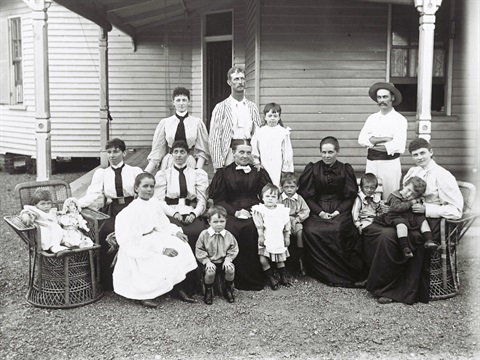Genealogy at home: Convict Records
Published on 24 March 2020

In the years 1788-1842 many people came to Australia as convicts. Because they were under government control, many different kinds of records were kept for them.
Indents
Perhaps the most important of these records are the convict indents. These are the records of convict arrivals in the colonies. Because there was no photography in those days, the records generally contain a physical description of the convict as well as details like age, crime, religion, marital status, and most importantly their place of origin.
Tickets of leave
These documents were issued to convicts to enable them to travel around the colonies and obtain work. Records exist for these documents from 1824 to 1875, and are available on Ancestry and Findmypast. They contain similar details to the convict indents records. They were used as a means of reward and punishment, and a convict could have had several different tickets of leave granted during their sentence.
Permissions to marry
A convicted could not get married without the permission of the authorities, whether the person they were marrying was a fellow convict or a free settler. New South Wales, Australia, Registers of Convicts' Applications to Marry, 1826-1851; and Licenses granted for marriages to free persons 1813-1827 are available on Ancestry and Findmypast. They give details of Ships of arrival, ages, and current location. Even if you were already married and had a spouse back in England, you were entitled to re-marry after 7 years in the colony.
Pardons
If a convict did not re-offend and proved themselves of good character, they were often rewarded with a pardon. An Absolute Pardon (1791-1846) could not be revoked, and allowed the recipient the freedom to travel back to Britain. A Conditional Pardon (1791-1856) gave the convict similar freedoms, but prevented them from returning home to Britain. Once a pardon was granted, the person was technically no longer a convict. These records are also found on Findmypast and Ancestry.
Convict families
Sometimes wives and children of convicts could apply to be brought out to the colony as assisted immigrants, to join their convict partner. Ancestry and Findmypast have the following record sets related to this. Wives and families of convicts on bounty ships (1849-55), indexes to members of the Family Colonization Loan Society (1854-57) and Passenger Lists of the Family Colonization Loan Society (1854-55).
Colonial Secretaries Records
This is the most comprehensive index of early NSW settlement, and one of the most valuable sources of information on all aspects of the history of the Colony from 1788-1825. It is arranged by surname and subject, and there are many records relating to convicts in this collection. It is available on Ancestry and Findmypast.